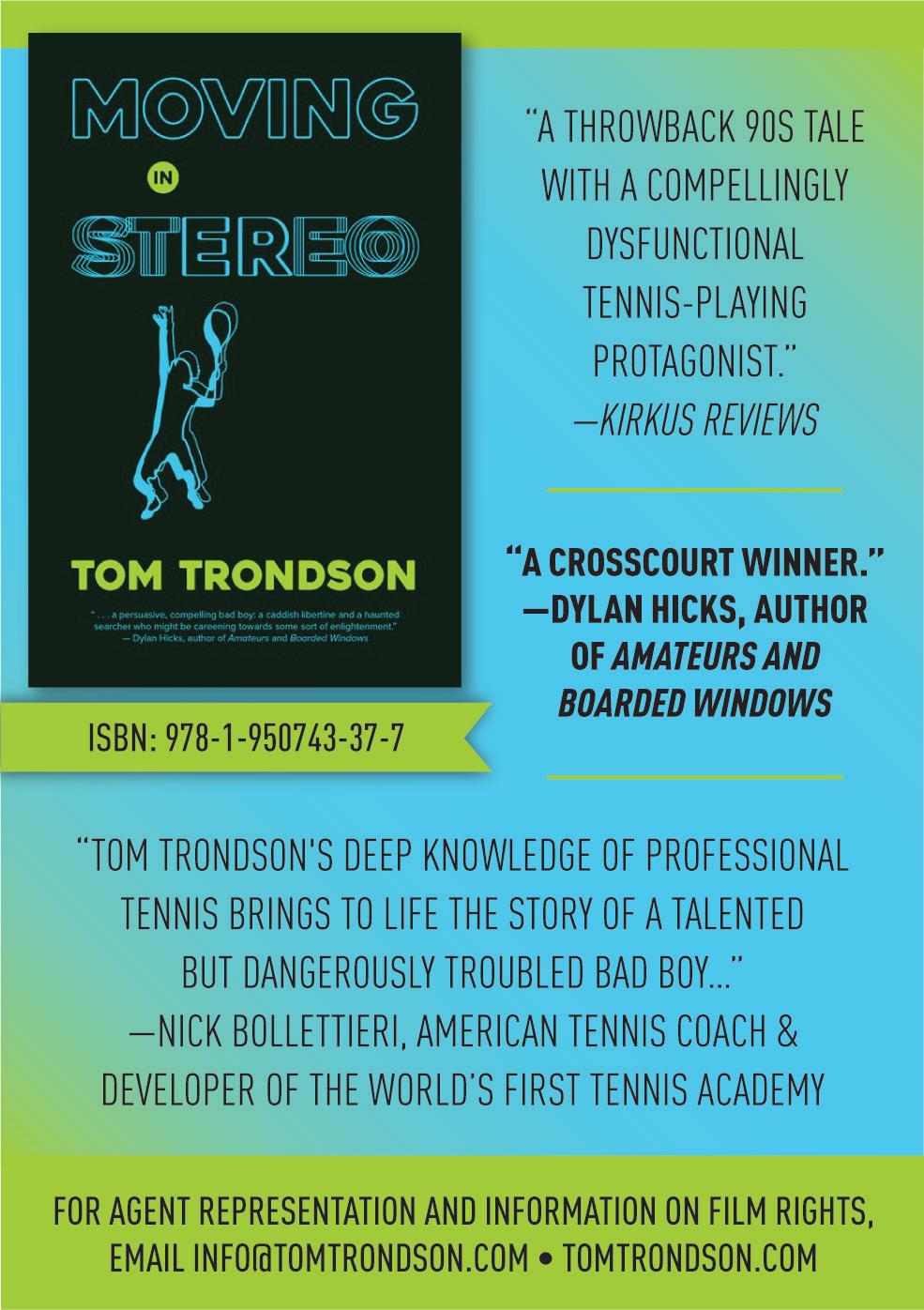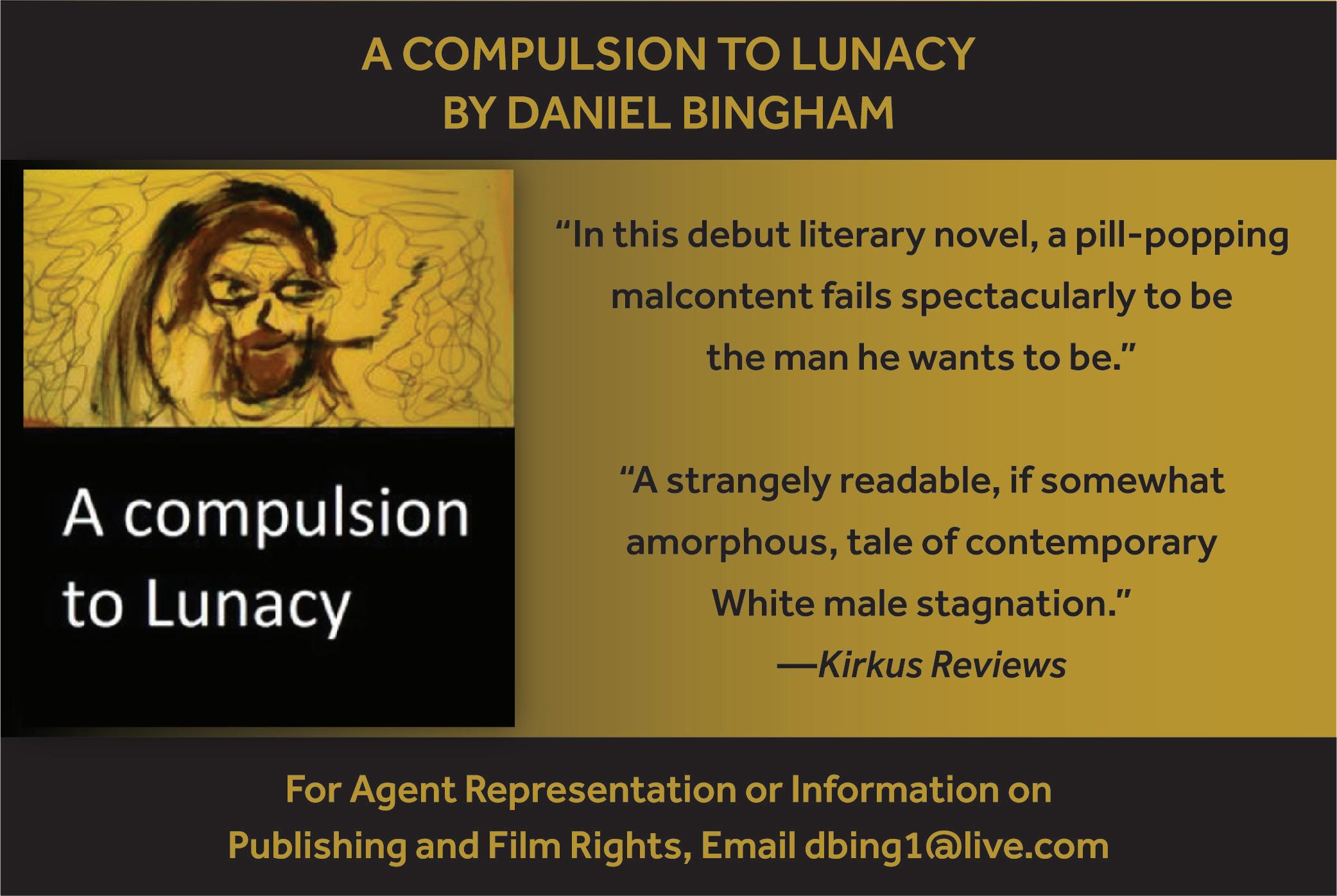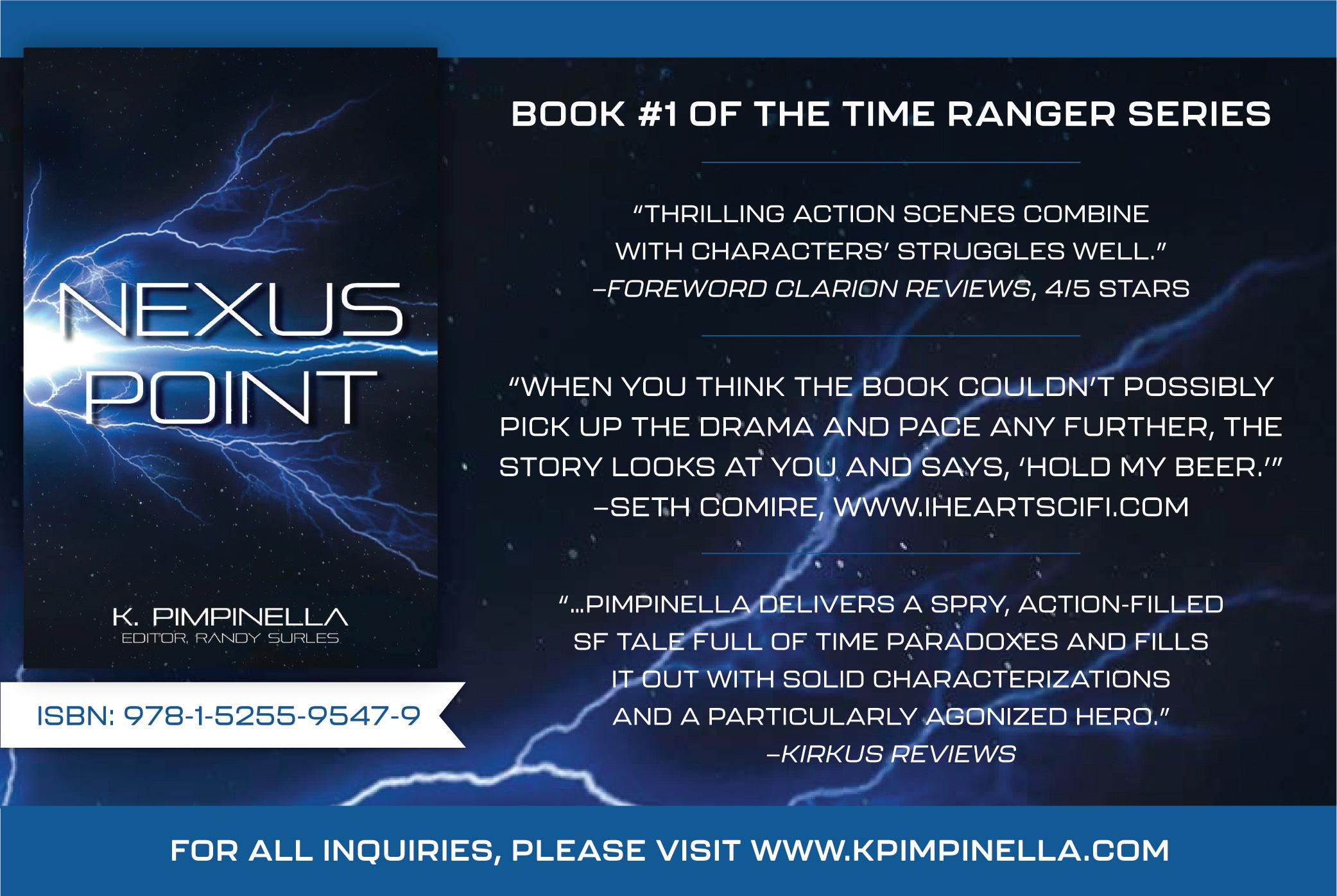
22 minute read
INTIMACIES by Katie Kitamura
intimacies
INTIMACIES
Kitamura, Katie Riverhead (240 pp.) $26.00 | Jul. 20, 2021 978-0-399-57616-4
A watchful, reticent woman sees peril and tries not to vanish. “Every certainty can give way without notice,” thinks the narrator of Kitamura’s stunning novel, a statement both true and freighted. It’s a delight to accompany the narrator’s astute observational intelligence through these pages, as it was in A Separation (2017), which also unspooled completely in the mind of its speaker. Both slim books are pared down, without chapter headings or quotation marks. A murder unsettles A Separation; a mugging destabilizes this new book. Its narrator is a temporary translator at the International Court of Justice in The Hague, where an unidentified head of state is on trial for atrocities in the months before the Brexit vote. The accused specifically requests the narrator to translate for him in a claustrophobic meeting with his defense team: “cross-border raid, mass grave, armed youth.” She hears and doesn’t hear the words amid her focus, just as she sees and doesn’t completely register events in her everyday life. “It is surprisingly easy to forget what you have witnessed,” she thinks, “the horrifying image or the voice speaking the unspeakable, in order to exist in the world we must and we do forget, we live in a state of I know but I do not know.” This is the crux of Kitamura’s preoccupation. She threads it brilliantly through the intimacies her character is trying to navigate: with new colleagues, women friends, and her beau, who goes away; with the work and with the nature of The Hague itself. Landscape holds a key, and on the final pages, the narrator intuits it might release her from some of the dread suffocating her. The novel packs a controlled but considerable wallop, all the more pleasurable for its nuance.
This psychological tone poem is a barbed and splendid meditation on peril.
SOMETHING NEW UNDER THE SUN
Kleeman, Alexandra Hogarth/Crown (368 pp.) $28.00 | Aug. 3, 2021 978-1-984826-30-5
An East Coast writer oversees the adaptation of his novel to film in a hellish version of Los Angeles. Patrick Hamlin arrives in Hollywood to assume a vague role on the set of the movie version of his latest novel. But everything about the process is befuddling—the movie script barely resembles his story, and his role is relegated to listening to the semiphilosophical ramblings of the production assistants and transporting Cassidy Carter, the tempestuous former child actor–turned–B-lister that is starring in the film. Patrick is increasingly alarmed by the things he witnesses: Wildfires flare constantly; everyone drinks a luxe synthetic product called WAT-R that is “the same as water, just a little bit more so.” And there is a mysterious “dementia” that is afflicting people seemingly at random, regardless of age. As the surrealism of the film-set experiences blend with the nightmarishness of LA, Patrick is also coming unglued by developments at home: His emotionally fragile wife and their 9-year-old daughter are staying at an upstate New York commune, where they participate in group mourning rituals as a kind of ecological grief work. It isn’t long before everything in Patrick’s life feels like it’s spiraling toward disaster. Kleeman’s novel is idea-driven, a critique of the artifice of consumerism and Hollywood culture in which that artifice is heightened on each page, from characters talking in polished soliloquies to the ominous ubiquity of WAT-R bottles in everyone’s hands. Everything in this world is deliberately just a little bit off, like the slight telltale warp of a Photoshopped selfie. While some readers might find the
WORDS WITH... Casey McQuiston
Two women fall in love on the New York subway in the latest romance from the author of Red, White & Royal Blue
BY LAURIE MUCHNICK

Sylvie Rosokoff
In 2019, Casey McQuiston burst onto the literary scene with Red, White & Royal Blue, a delightful bonbon that imagines a hot and funny romance between a British prince and the son of the U.S. president. Her latest high-concept confection is grittier but no less sweet and sexy, and this time the obstacles to a happily-ever-after are even more daunting than politics and the fierce British press. At the beginning of One Last Stop (St. Martin’s Griffin, June 1), 23-year-old August has just moved to Brooklyn; she’s found an apartment with a gang of quirky roommates and a waitressing job at Pancake Billy’s House of Pancakes. Then she collides with a cute woman in a black leather jacket on the subway, and soon she and Jane are talking and flirting every time she gets on the train. But why is Jane always there, no matter when or where August boards? It turns out that Jane has been caught on the Q train since the 1970s, never getting older and never going anywhere. Can August and her friends figure out what happened and help Jane get off the train? The book brings Brooklyn vividly to life, though McQuiston wrote most of it while living in Colorado. Visiting New York to do research convinced her she was meant to be a New Yorker, and she moved just before the lockdown began last year. I spoke to her by Zoom from her new apartment in Queens; our conversation has been edited for length and clarity.
Your first book was about two men and your new book is about two women. How is it different writing about men falling in love versus women falling in love? I think the beauty of the queer experience is that there is no one queer experience. I could write 300 books about women falling in love, and they would all be different and challenging in different ways. And, honestly, what was more challenging than gender or anything in this book was just trying to write a romance in which one person can’t leave the subway! But ultimately I think these are two very different books that make you feel the same way at the end even though they use two different equations to get to the same solution.
And how do you want us to feel at the end? I want you to feel hopeful and happy and comforted. And like you’ve just eaten a really delicious cheeseburger.
There’s a lot of food in this book! Jane recovers her past through sense memories—smells, tastes, sounds. Did you do a lot of research or just put in things you love? It was both, but I did do a lot of research into, specifically, music that came out in the early to mid-1970s that I thought Jane would like. It’s hard because you
don’t want to pick something that’s super-clichéd, the first song you think of. So I did more figuring out what was No. 27 on the Billboard charts that week—not No. 1 but No. 27.
The way you write about the New York City subway is almost romantic, in spite of all the rats. I’m originally from Southern Louisiana, and we don’t have a lot of public transit, certainly not underground public transit. So the first time I came to New York, when I was a teenager, and experienced the subway, it was like, Wow, this is just like in a movie. It was very, very exciting, and there’s still a little bit of magic to it, even after living in New York for a while. I’ve had so many moments where you glance out the window and look into the window of the next train, and it’s just this one little glancing moment in time where your life and another 500 people’s lives cross for half a second. It feels so incidental, and there’s something I found really, really romantic and wistful and beautiful and poetic about that. I tried to put as much of that into the book as I could, even though I like to think this book is really honest about what the subway is like. There are terrible things about it, but yesterday I had this moment. I was coming back from the doctor’s office, and I was sitting across from a person who was traveling with a flowering tree. And there was a Brooklinen ad, which is mentioned in the book. It’s stuff like that that made me write the book, these weird serendipitous moments of fate.
Why did you pick the Q train? It’s one of the most picturesque lines—it’s aboveground for most of the way through Brooklyn. And it goes all the way to the beach but also hits Chinatown and Times Square, it really gives you all the greatest hits of New York. And I wanted to pick a line that was at least half aboveground because I didn’t want Jane to be in the dark all the time. She has to be stuck on a train—let her see some sights.
In each of your books, one of the protagonists is bisexual. Why is that? I think it’s funny, because neither of my books are ever described as bisexual books even though the leads are both bisexual. And I’ve been wondering what kind of book I could write that would be called a bisexual book. I mean, at some point, a romance is a happilyever-after between two people, but I think that bisexual people continue to be bisexual, no matter who they’re with. I think bisexuality is a very specific queer point of view. And I don’t know how to write somebody who’s not bisexual because my characters will always be noticing that every person is hot, regardless of gender, because that’s just how I see the world.
Both your books are romantic comedies, but this one has elements of fantasy. Who are some of your favorite writers? I read really broadly—I have something for everyone back here [waving at bookshelves]. The thing I’m looking for, more than anything, regardless of genre, is books that have a specific point of view and really commit to it—they’re not going to pull any punches. My favorite romance writer right now is Talia Hibbert; everything she does excites me so much. I also love Alyssa Cole; she’s sharp and funny and voice-y. I really enjoy Sally Thorne and Helen Hoang and Jasmine Guillory. Olivia Waite has a bunch of lesbian historicals that are really fun.
Let me look at my bookshelves—I’m going to cheat! I love Abby Jimenez, she’s another super voice-y author. And oh! I love Emily Henry. She’s a relatively new voice in romance, and she has a really, really effective balance of poignant themes and themes of grief and family trauma and stuff like that with this really funny, clever narration. One of my favorite things about romance is this wonderful intersection of human pain and human joy. Those are the extremes of humanity, and romance writers manage to balance them in a fun, pastel-covered book that makes you really happy at the end.
One Last Stop was reviewed in the Feb. 15, 2021, issue.

songbirds
novel overly conceptual, it’s undeniably fun to watch Kleeman juggle genre, from mystery to domestic drama, from cli-fi to ghost story.
An admirably eclectic take on environmental dystopia.
HOLDOUT
Kluger, Jeffrey Dutton (352 pp.) $26.00 | Aug. 3, 2021 978-0-593-18469-1
Refusing to return to Earth after the International Space Station is badly damaged, American astronaut Walli Beckwith stages an unthinkable one-woman protest against the destruction of the Amazon rainforest.
A malfunction has caused a cargo vehicle to collide with the space station, seriously injuring one of Beckwith’s two Russian crew mates. Blowing off both Houston and Moscow, who guarantee she will serve a long prison term if she disobeys orders to make the return trip, she draws the wrath of world powers invested in the space station. And in lobbying the U.S. government to cancel Brazil’s new “consolidation” policy, which is to set massive fires in the jungle to clear out tens of thousands of tribespeople, she creates political trouble for the two-faced, misogynistic American president. He wants no part of any intervention even when he says he does. Her campaign, which makes her a sensation on social media, resonates most strongly with her niece Sonia, a young volunteer doctor in the rainforest tending to the sick and homeless. Kluger, a Time veteran who has written several books about space including Lost Moon: The Perilous Voyage of Apollo 13 (1994) with astronaut James Lovell, fuels the narrative with fascinating technical details. And the action scenes, including a spacewalk in which a fever-ridden Beckwith must repair a coolant system leaking lethal ammonia, are pretty gripping. But the heroine is mostly a collection of righteous intentions, and with the exception of a 5-year-old Guarani boy in Sonia’s loving care, Kluger gives no voice to the tribespeople, presenting them as faceless victims.
A good adventure story undercut by its dated point of view.

SONGBIRDS
Lefteri, Christy Ballantine (336 pp.) $27.00 | Aug. 3, 2021 978-0-593-23804-2
The disappearance of an immigrant working in Cyprus reveals secrets personal and political. Nisha is a migrant worker who left her home in Sri Lanka for a job as a nanny and housekeeper in Nicosia, the capital of Cyprus. Petra, a well-off optician who is Nisha’s employer, is more dependent than she realizes on the nurturing, hardworking nanny. Yiannis, the tenant in an apartment in Petra’s house, is having a secret affair with Nisha (which could get Nisha fired or even deported) and has fallen in love with her. When Nisha disappears without warning one night, Petra and Yiannis soon discover they don’t know her at all. The novel brings a gradual revelation of Nisha’s many secrets, and it uncovers Petra’s and Yiannis’ hidden pasts as well. Nisha, who left her own young daughter with family in Sri Lanka to find work, was the true mother figure to Aliki, Petra’s 9-year-old daughter. Petra’s relationship to the child has always been fraught; her husband was diagnosed with cancer weeks after she became pregnant, and he died before the baby’s birth. Even before Nisha vanished, Aliki had stopped talking to her mother, and now Petra must examine her parenting. Yiannis left his rural roots behind to become successful in finance but crashed out of that career and now makes a living as a forager of wild foods for restaurants. He also has a lucrative secret occupation: poaching songbirds. Cyprus lies on major migration routes between Europe and Africa, and Yiannis and his fellow poachers catch thousands of the tiny birds
with mist nets and glue sticks, then kill them and sell them as gourmet delicacies. Lefteri describes the poachers’ methods in disturbing detail, and the birds serve too as a metaphor for human refugees. Petra reports Nisha’s disappearance, but the police have no interest in looking for a missing migrant worker, so she searches on her own. Her quest leads her to a world of exploitation of migrants she never knew existed, and she and Yiannis join forces to try to uncover Nisha’s fate. Although the book’s dialogue can sometimes be stilted or preachy, its characters are engaging and its story moving.
This well-crafted novel puts a poignantly human face on often invisible migrant workers.
LEAVE SOCIETY
Lin, Tao Vintage (368 pp.) $16.00 paper | Aug. 3, 2021 978-1-101-97447-6
Lin’s new novel blends metafiction with commentary on modern medicine, with mixed results. As in much of Lin’s fiction, the main character here appears to be a stand-in for the author: There’s a reference to protagonist Li spending a decade “writing existential autofiction,” and at one point he sends an email to his editor about “a nonfiction book on psychedelics” that sounds not unlike Lin’s book Trip (2018). In that same email, Li writes a summary of events we read about earlier in the book—a visit to his parents in Taiwan—making this a work of autofiction that is in part about writing a work of autofiction. That isn’t the only thread running through the book, however. Li is also coping with his

god spare the girls
parents’ aging and his concern over their health, often via worrying about his father’s consumption of statins and inveighing against the toxins found in store-bought coffee. Li also spends time consuming cannabis and/or LSD, and some of the novel’s highlights come from passages that reflect a transcendent state of consciousness. “The city’s artificial lights, zooming by on cars, floating past on lamps, seemed pretty and affecting as near, teary stars.” Elsewhere, the prose can feel clunky or overly expositional—particularly an aside telling the reader that Wikipedia “aggregated the mainstream.” And a subplot about the growing relationship between Li and Kay, an editor, includes an email from Li which feels far too candid: “People used to do enemas a lot, it seems, but now they do it less, maybe due to fear of butts/ poop.” Li’s interactions with his parents are unpredictable; the rest of this novel, however, feels oddly detached.
Ambitious in some places and quotidian in others.

GOD SPARE THE GIRLS
McKinney, Kelsey Morrow/HarperCollins (320 pp.) $27.99 | Jun. 22, 2021 978-0-06-302025-2
A looming wedding, an extramarital affair, and a broken virginity pact: family drama with a born-again twist. Caroline Nolan can’t wait to escape. It’s the summer before her freshman year of college, and she’s excited to leave her life as the daughter of Luke Nolan, head evangelical preacher in Hope, Texas, and start forging her own way. Caroline doesn’t want to follow in her mother’s footsteps as the preacher’s perfect wife; nor does she see a place for herself on her older sister Abigail’s path as the preacher’s perfect daughter. But then life as she knows it starts to crumble. On the evening after Abigail’s bridal shower, Caroline has sex with the son of a church elder and removes her purity ring—placed there by her father. She doesn’t feel the catastrophic guilt she had expected but instead starts to question who she is: “A good Christian would feel guilty. Caroline felt nothing at all.” Later, Caroline and her family must reckon with a far more disastrous event: Luke confesses to the church elders that he had an affair with Caroline’s fourth grade teacher. With their family life in ruins and their father’s career hanging in the balance, Caroline and Abigail—armed with a resounding feeling of betrayal—leave their parents’ home to stay at the ranch left to them by their grandmother. All the while their mother’s confusing words echo in Caroline’s thoughts: “This land hasn’t been kind to the women of our family. It holds a lot of bitterness.” The longer the sisters stay at the ranch, the more uncomfortable truths they uncover and the more they must grapple with their roles in the family and what they want for the future. The highlight of McKinney’s authentic narrative is her treatment of relationships, and Caroline and Abigail’s growing connection as the rest of their world threatens to fall apart is at once engaging, witty, and heartbreaking.
A loss of faith gives way to something much stronger.
WHEN THE RECKONING COMES
McQueen, LaTanya Perennial/HarperCollins (256 pp.) $17.00 paper | Aug. 3, 2021 978-0-06-303-504-1
The dark history of a North Carolina tobacco plantation casts a shadow on 21st-century visitors in McQueen’s wrenching debut novel. Mira, a Black high school English teacher in Winston-Salem, hasn’t returned to her rural hometown for more than 10 years when she receives a call from her old friend Celine, who’s White, saying she’s marrying a local
dentist who’s the heir to a tobacco fortune and asking Mira to come to their wedding. Though Mira is shocked to discover that the wedding is taking place at a restored plantation now functioning as a sort of antebellum theme park, complete with locals playing the roles of slaves, she agrees to attend, partly because she wants to see Jesse, who’s Black and was formerly close to both her and Celine. Her friendship with Jesse fell apart when, as kids, they broke into the Woodsman Plantation, the same place the wedding is being held. Mira ran away because she thought she saw ghosts, and, soon after, Jesse was accused of killing a man whose body washed up in the river nearby. Returning to the plantation, Mira again strongly senses the presence of slaves who were killed during an attempted rebellion and feels that they are about to take revenge on the descendants of their former masters—a feeling that is borne out as the wedding goes awry in deadly ways. A subplot involving a romantic attraction between Mira and Jesse seems shoehorned in, and some of the later plot twists are more convenient than convincing. But McQueen carefully walks the line between visions and reality, weaving the voices and stories of the former slaves into the present-day lives and thoughts of her characters as history that has been denied and buried asserts itself.
An original, if sometimes melodramatic, look at how the past bleeds into the present.
AN UNRELIABLE TRUTH
Methos, Victor Thomas & Mercer (349 pp.) $15.95 paper | Aug. 17, 2021 978-1-5420-2266-8
Defense attorney Dylan Aster’s unblemished trial record is threatened by an impossible case he gets sucked into. Madeline Ismera, a public defender in Oregon’s Jackson County, reaches out to a friend in the DA’s office of Nevada’s Clark County to ask Dylan for help exactly because of his stellar reputation. The defendant she’s

been assigned, diagnosed schizophrenic Arlo Ward, is accused of a horrific crime in Coyote Canyon: the slaughter, partial dismemberment, and lewd posing of three young campers (a fourth, Holly Fallows, escaped only by jumping off a cliff ahead of her shadowy pursuer). The police picked him up covered with blood very close to the crime scene, and he’s actually confessed to the murders in the hope of attracting media attention that will build the audience for the tell-all book he plans to write in order to leave the proceeds to his wife and daughter. Meeting with Arlo, Dylan and his law partner, Lily Ricci, quickly realize that the best defense they can possibly provide will have to contend with an obstacle even more daunting than ravenously competitive Jackson County DA Kelly Whitewolf: Arlo’s own refusal to plead not guilty. “I think he wants to believe he did this,” Madeline tells Dylan. What can a lawyer do when everyone he meets, from the prosecutor to the police to the witnesses to his own client, is determined to thwart his attempts to save the client’s life? The courtroom duels are correspondingly sharp even though the outcome seems like a forgone conclusion. Or does it?
A B-minus mystery that’s a straight-A legal thriller, with a final scene as satisfying as it is disturbing.

MY POLICEMAN
Roberts, Bethan Penguin (304 pp.) $17.00 paper | Aug. 3, 2021 978-0-14-313698-9
A woman looks back on her life with her husband and his gay lover. Inspired by the love life of novelist E.M. Forster, Roberts’ new book captures an unconventional—and illegal— love triangle in 1950s England. Opening in October 1999, retired schoolteacher Marion is writing a “confession of sorts” to Patrick, her husband’s lover, for whom she is caring after a near-fatal stroke: “When I am finished, I plan to read this account to you, Patrick, because you can’t answer back any more.” From there, Marion’s letter travels back 48 years to when she met her future husband, Tom. She tells the story of her pining for Tom and how their friendship turned into (an oft one-sided) courtship. The narrative framing allows her to offer insight into her past from the perch of the present (“I remember that I once felt intense and secret things, just like you, Patrick”). About Tom and Marion’s whirlwind wedding, she writes, “At the time it was thrilling, this dizzy rush into marriage, and it was flattering, too. But now I suspect he wanted to get it over with, before he changed his mind.” Eventually, the novel switches perspectives and offers Patrick’s journal entries from the past. He writes about his beloved job as a museum curator; his relationship with Tom (whom he calls “my policeman”); and navigating his sexuality during a time when being gay was illegal. As their lives become more entangled, Marion slowly realizes the truth about Patrick and Tom. When a rash and unforgivable decision is made, their lives are changed forever. The novel’s dueling perspectives allow both Marion and Patrick to explore the pain and joy of loving the same man. Roberts beautifully captures the devastation of being unable or unwilling to live in one’s truth, and the quiet ending offers a poignant moment of respite for everyone. Marion, Tom, and Patrick haven’t led the lives they expected or wanted to, but there’s still time left. Nothing can be taken back, but perhaps the truth can begin to heal them all.
A melancholy story about love, loss, and unnecessary suffering.
when we were young
WHEN WE WERE YOUNG
Roper, Richard Putnam (352 pp.) $26.00 | Jul. 20, 2021 978-0-525-53991-9
Estranged childhood friends attempt to reconnect while walking the Thames Path. Years ago, in their teens, Joel Thompson and Theo Hern promised each other that one day they would walk the entirety of the Thames Path together. Now, about to turn 30, they haven’t spoken in years and are in very different places in life. Theo moved back to his parents’ house after having a quarter-life crisis, and they’ve just served him an eviction notice a week before his 30th birthday. Joel, in London, has been doing extremely well—impressive career in television, loving relationship with his high school sweetheart—except for one piece of news he’s just received. Wanting to make things right with his old friend, Joel shows up on his doorstep on the morning of Theo’s birthday, imploring Theo to finally walk the Thames Path together. Despite his reluctance and the still-fresh pain from their past, Theo meets Joel at the trailhead and the walk begins. Along the way, old wounds will be reopened, but maybe that way they can finally heal. Writing with both great humor and heart, Roper has a light touch that keeps the reader laughing even while he gently pulls on the heartstrings. Theo and Joel have hurt each other in the past, and their history of miscommunication and trauma feels incredibly real, but their longing for reconnection and nostalgia for what they once were also shines through. Even in hard moments, there is an element of farce, especially in scenes when Joel, Theo, and Joel’s girlfriend, Amber, play around with who knows what secret. Although the end might not land with everyone, the story of two friends finding each other again will resonate with most.
A funny and poignant portrait of friendship.







